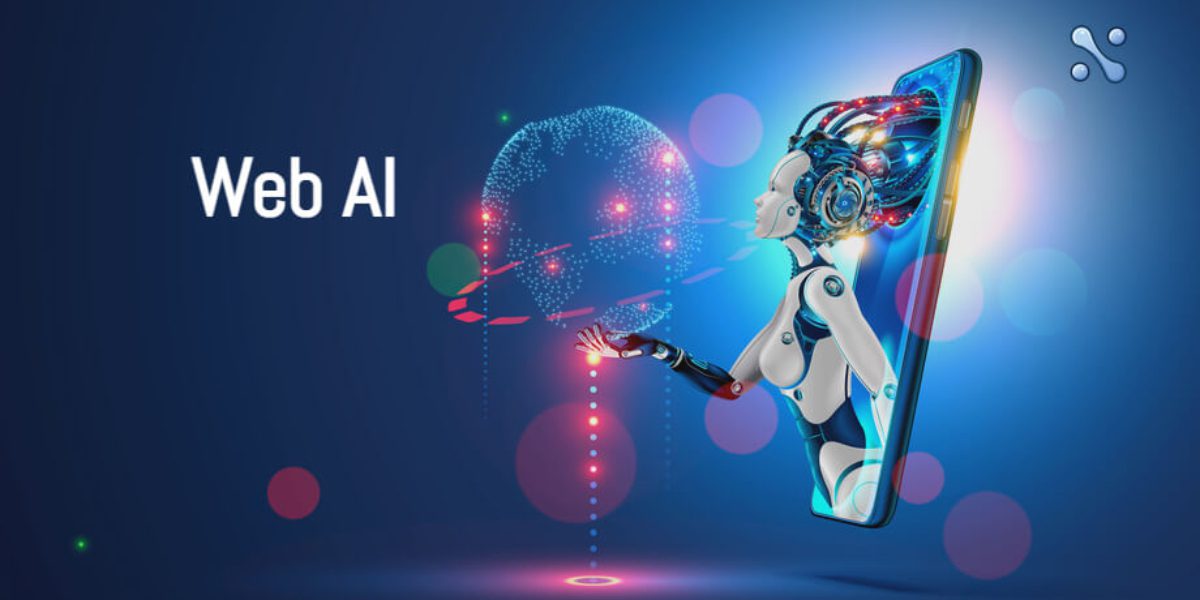The field of web development is rapidly transforming, fueled by advancements that improve user experience, optimize workflows, and boost overall performance. In fact, one of the most significant innovations driving this change is Artificial Intelligence (AI). What was once considered a futuristic technology now plays a crucial role in shaping how we design, develop, and interact with websites and web applications. As a result, AI has become indispensable in modern web development.
In this blog post, we’ll explore the many ways AI transforms web development and why developers and businesses should embrace it.
1. Personalized User Experience
AI plays a significant role in delivering personalized user experiences. By analyzing user behavior, preferences, and interactions in real-time, AI enables websites to adapt content dynamically to meet individual needs. Consequently, users receive a more engaging and customized experience that keeps them coming back.
How AI Personalizes Web Experiences:
- Recommendation Engines: Platforms like Netflix, Amazon, and YouTube use AI to recommend content or products based on users’ browsing and purchase history. Thus, AI increases engagement and conversions by offering more relevant suggestions.
- Content Customization: Websites change content, layout, and even language based on users’ behavior, location, or demographic data. Therefore, each visitor experiences a tailored interface.
- Chatbots: AI-powered chatbots offer immediate, personalized assistance to users, solving problems and guiding them through the site without human intervention. In turn, this helps users find information quickly and enhances their overall satisfaction.
In conclusion, AI enables businesses to offer a more personalized browsing experience, which leads to better user retention and higher conversion rates.
2. AI-Driven Web Design
Web design, once a manual process requiring a lot of guesswork, now benefits from AI tools that automate many aspects of design and layout. Thanks to AI, developers can create attractive and functional designs based on user preferences and analytics with much greater ease.
How AI Impacts Web Design:
- Automated Layouts and Templates: Tools like Wix’s ADI (Artificial Design Intelligence) use AI to generate fully functioning websites based on user inputs. These tools analyze the content provided by users and create aesthetically pleasing and functional layouts in minutes.
- Design Predictions: AI predicts the success of design elements or layouts by analyzing patterns across websites. By doing so, AI ensures that websites adhere to modern trends while being effective at converting visitors.
- Image Optimization: AI automatically resizes and compresses images without losing quality, enhancing site performance and reducing load times. As a result, this improves the user experience by reducing waiting times.
Ultimately, AI allows developers and designers to save time and effort, delivering high-quality designs more efficiently.
3. AI for Web Accessibility
AI plays an essential role in making web content more accessible to everyone, including people with disabilities. Moreover, it helps web developers ensure their sites are more inclusive, benefiting both users and businesses.
How AI Improves Web Accessibility:
- Automatic Alt Text for Images: AI analyzes images and generates accurate alternative text (alt text), which is vital for users with visual impairments who rely on screen readers. Consequently, AI makes it easier for users to navigate the web independently.
- Voice Navigation: AI-driven voice recognition systems enable users to navigate websites and interact with content using voice commands. This feature is especially useful for people with mobility impairments.
- Text-to-Speech: AI-powered text-to-speech technology converts website text into spoken words, helping individuals with reading disabilities or visual impairments access content more easily. Thus, it creates a more inclusive browsing experience.
In short, AI ensures that web content is accessible to a wider audience, making the web more inclusive.
4. AI in Website Optimization and Testing
AI is transforming how developers optimize and test websites. With the help of automation tools powered by AI, developers can analyze data, identify issues, and even suggest fixes. This ultimately saves time and improves website performance.
How AI Helps in Optimization:
- Automated Performance Monitoring: AI tools continuously monitor website performance, alerting developers to issues such as slow load times, broken links, or server downtimes. As a result, issues can be addressed before they affect users.
- A/B Testing: AI assists with more efficient A/B testing by analyzing user interactions and suggesting which elements (e.g., buttons, images, or copy) drive the most conversions. Consequently, businesses can refine their websites to increase user engagement.
- SEO Optimization: AI tools like Clearscope or MarketMuse analyze content and suggest improvements to help websites rank higher in search engine results. These tools also help with keyword performance and content strategy.
- Predictive Analytics: AI models predict traffic patterns, enabling developers to proactively make adjustments to handle traffic spikes and ensure the website remains functional under heavy load.
Overall, using AI to automate optimization tasks allows developers to focus on building features that matter most to users while ensuring a seamless experience.
5. AI Chatbots and Virtual Assistants
Chatbots are among the most widely used AI technologies on the web. By leveraging AI-powered chatbots, businesses can assist customers 24/7, providing immediate responses to inquiries, helping with navigation, and even completing transactions. Thus, businesses save on operational costs while offering excellent customer service.
Benefits of AI Chatbots:
- Instant Customer Support: AI chatbots answer frequently asked questions, troubleshoot common issues, and resolve simple customer service queries without human intervention. As a result, users receive quick and efficient assistance.
- Cost-Effective: By automating customer support, businesses save on human resource costs while providing immediate assistance across time zones.
- Improved User Engagement: Chatbots initiate conversations based on user activity on the website, guiding users to relevant content or offers. Consequently, this increases engagement and conversions.
In the future, as AI continues to improve, chatbots will become even more sophisticated, offering deeper insights into user behavior and providing hyper-personalized experiences.
6. AI-Powered Security
Security remains a top priority in web development, and AI is enhancing website security. Thanks to AI-powered security systems, developers can monitor websites in real-time, detect anomalies, and respond to potential threats faster than human administrators.
How AI Enhances Website Security:
- Fraud Detection: AI monitors user behavior to detect suspicious activity, such as unusual login attempts, which could indicate hacking or fraud. Thus, it helps prevent security breaches.
- Automated Threat Detection: Machine learning models identify new types of cyberattacks or vulnerabilities by continuously analyzing data and recognizing patterns that deviate from the norm.
- Malware Detection: AI-driven security tools scan and detect malware or malicious code that might be injected into a website or database, ensuring sensitive data remains protected. As a result, AI enhances overall security and protects user data.
Ultimately, as cyberattacks become more sophisticated, AI’s role in web security will only continue to grow, making it a valuable tool for developers seeking to safeguard their websites.
Conclusion
Artificial Intelligence is revolutionizing web development by improving user experiences, automating tasks, enhancing security, and optimizing website performance. By integrating AI into their workflows, developers can create more efficient, accessible, and secure websites while offering personalized experiences that delight users.
As AI continues to evolve, its role in web development will become even more integral. Therefore, developers who embrace AI technologies today will stay ahead of the curve and build the next generation of web applications.




